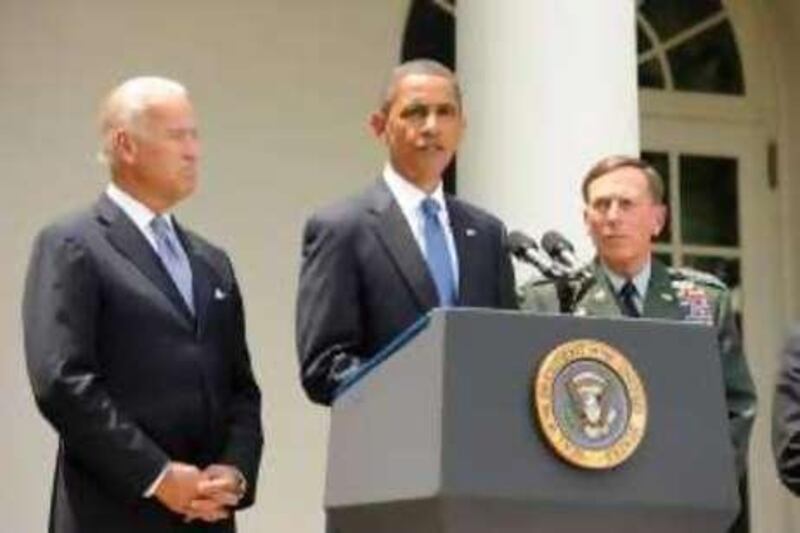KABUL // The dismissal of Gen Stanley McChrystal as head of US and Nato forces in Afghanistan has exacerbated the sense of chaos and uncertainty in a country many fear will have a violent summer. Gen McChrystal was the architect of the war's strategy and his departure has made the sense of malaise overtaking the operation all the more tangible. It is increasingly hard to deny the sense that the Taliban have captured the momentum from a fractured, sometimes misguided, and often arrogant enemy. The militants certainly believe that is the case and so, increasingly, do ordinary Afghans.
Gen McChrystal's aim was to shift Afghans away from the insurgency, yet he may well be remembered for having had the opposite effect. The nature of his dismissal may seem a fitting end to a disastrous year on the ground during his tenure. He would no doubt insist his strategy is slowly working and needs more time but most, if not all, the signs say otherwise. At the heart of his plan was a desire for the number of foreign soldiers to be significantly increased. Although he did not quite get the reinforcements he wanted, the occupation did expand significantly.
No one, other than his president, Barack Obama, bears more responsibility for the sheer scale of the conflict now facing this country. At the start of 2009, there were a little over 30,000 US troops in Afghanistan. Today, there are nearly 100,000, not including those from Nato allies and tens of thousands of privately armed contractors. They are there to carry out Gen McChrystal's much-vaunted counterinsurgency strategy. This approach is meant to help spread the influence of the Afghan government, to put greater emphasis on reducing civilian casualties and to encourage soldiers to win the trust of the population by living in closer proximity to it. The trouble is that, beyond the hype, the strategy resembles what has been tried against guerrilla movements before, most notably in Vietnam, where a technically superior force was defeated by a "peasant" army. Here, there are signs that the same approach is backfiring.
Violence has increased and insecurity spread. If US troops have pushed into new areas, so have the Taliban, moving into parts of the north that were previously beyond their reach. Indeed, each time Gen McChrystal dealt what was meant to be a winning hand that would bring some respite, the Taliban simply responded by upping the stakes. When a major Nato operation was launched in the province of Helmand earlier this year, it received unprecedented coverage in the media and was initially hailed as a success. Then, later, Gen McChrystal himself described it as "a bleeding ulcer". The insurgents had just melted away and returned when the time was right. In Kandahar, the impact of his strategy has been even worse. After he announced plans for a massive summer offensive, the southern city was hit by a wave of bombings and assassinations, forcing him to backtrack. But in the end, what lost him his job was a profile in the US magazine, Rolling Stone. The article provides a valuable insight into a man who had previously managed to avoid any intense scrutiny from the media. Both he and his team come across as arrogant and immature, like college students running an out of control fraternity house. If such men were spearheading the war, their dismissals should be welcomed. The problem for Afghanistan, Nato and Washington, is that while Gen. McChrystal has departed, his strategy under his replacement Gen David Patraeus will remain. Far from embarrassing a group of rogue individuals with Gen McChrystal at its centre, the Rolling Stone story peeled the lid on something far more worrying: a military establishment that is addicted to war and disdainful of anyone who is not. As a result, Afghanistan has become a laboratory for this establishment's differing theories, ideas and weapons, a place where the egos of its leaders routinely clash. No one appears to know the aim of all this but Washington is committed to following through, regardless of what may lie in wait. In 2009, Gen McChrystal wrote a detailed assessment of the situation as part of his effort to get approval for extra troops. It warned of a "crisis of confidence among Afghans" in their own government and the international community. Nearly a year after it was leaked, with his strategy firmly in place but him now gone, his words could not ring more true. @Email:csands@thenational.ae





